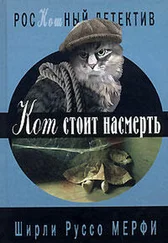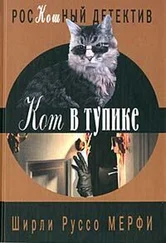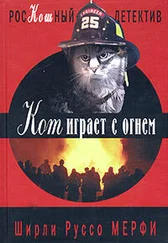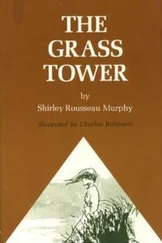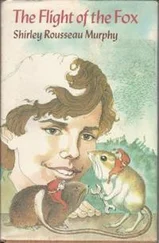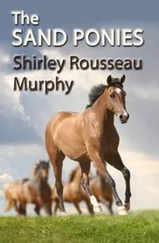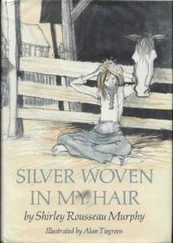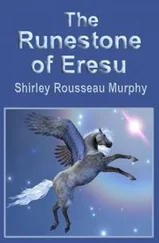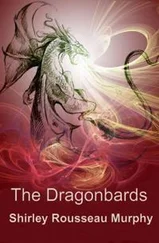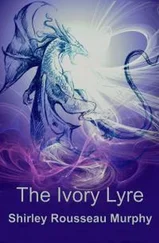FROM THE REVIEWS
Of The Ring of Fire:
“An intricate adventure story with appeal for fantasy lovers.” --ALA Booklist
“Murphy's artistic talent is evident as she paints with words a lavish tapestry of the forces of good and evil in her fantasy land of Ere.” — Bookrags.com
Of The Wolf Bell:
“An adventurous tale full of action and suspense.” — ALA Booklist
“The enjoyable tale rises above the pack on the strength of the author's unique and compelling ‘warts and all’ portrayal of Tayba, a multifaceted, real, and fascinating woman.” --School Library Journal
The Shattered Stone
by
Shirley Rousseau Murphy
Smashwords Edition
Copyright © 1977, 1979 by Shirley Rousseau Murphy
All rights reserved. For information contact webmaster@joegrey.com. This ebook is licensed for your personal enjoyment only, and may not be resold, given away, or altered.
This is the first of two volumes containing the Children of Ynell series. It includes The Ring of Fire and The Wolf Bell , and is followed by The Runestone of Eresu , which includes The Castle of Hape, Caves of Fire and Ice , and The Joining of the Stone.
Atheneum edition of The Ring of Fire (hardcover) published in 1977
Avon edition (paperback) published in 1979
Atheneum edition of The Wolf Bell (hardcover) published in 1979
Avon edition (paperback) published in 1980
Ad Stellae Books edition, 2011
Author website: www.joegrey.com
Cover art © by Corey Ford / 123RF
CONTENTS
The Ring of Fire
Part One: The Curse of Ynell
Part Two: The Runestone
Part Three: Fire Scourge
Part Four: The Luff’Eresi
The Wolf Bell
Part One: The Bell
Part Two: The Wolves
Part Three: The Stone
About the Author
The Ring of Fire
Part One: The Curse of Ynell
The mountains were jagged and black, a circle of volcanic peaks a hundred miles across. No man of Ere ventured far into them, or knew what lay beyond. Ere’s eleven countries crowded at their feet, pressed in by the empty sea and by the barren high deserts to the west; beyond the mountains were the unknown lands. Or perhaps nothing lay beyond. The countries of Ere were Cloffi and Kubal; Urobb and Carriol and Farr; Pelli and Sangur and Aybil and Zandour; and on the edge of the high deserts where life was barely possible, Karra and Moramia.
The history of Ere was violent with raiding and with war, just as the mountains themselves were violent sometimes in their eruptions of lava and fire that would spill across the warring nations, when the gods were angered.
In the old times it was the Herebian tribes who killed and tortured and took slaves, who hung the heads of their enemies from the center poles of their bivouac camps. But since the Herebian had formed themselves into a nation, driving out farmers and herders from a hilly section and naming this land Kubal, their warring had become less frequent. The eleven nations lay quiet: Ere was poised in a time of peace; though dark Kubal humped in eternal threat there between the borders of Cloffi and Urobb.
It is Cloffi where this story begins.
High up the mountain, above Cloffi’s three cities, lay the little herd village of Dunoon, its pastures scattered like green velvet among the black lava ridges. A small nest of freedom. Dunoon, maintaining stubborn truce against the tyranny of the Landmasters of Cloffi who ruled the nation below.
ONE
Thorn readied an arrow against the string of his sectbow and searched the moonlit mountain above him. The guard buck stirred again, restlessly. Wolves, likely, moving in the darkness of the lava crags. And yet the herd’s unease was different than when they faced approaching wolves. The buck’s spiralling horns caught the moonlight as he shifted nervously. Thorn tried to see movement in the dark images cast by the moons but nothing stirred.
Finally the buck settled and turned to grazing. Thorn lowered his bow, keeping the arrow taut with one hand. Below him the village slept. He moved stiffly: his body still pained him from the beating he had taken. He scowled as he looked down past his own village to the far lights of Burgdeeth: the larger town lay so steep below he could have spit on it. “Goatherd!” The three boys had shouted, taunting him. “Goat dung burns on your hearth!” No older than he, strapping lads they were for all their city ways. “And your mother’s a fracking brood milker!” He had piled into them, had fought well enough until the six red-robed Deacons dragged him away to beat him with a ceremonial staff, at the Landmaster’s direction. The townsfolk of Burgdeeth had crowded into the square to smirk and whisper, remembering their own beatings, Thorn supposed, so taking great pleasure in his.
Ere’s two moons hung low in the sky, washing their light across the eleven nations. The dark smudge in the south would be heavy cloud lying over the far sea. He watched the river Owdneet slip rushing down the mountain past his own village, then past Burgdeeth, and on toward the two more southerly Cloffi cities. The buck stirred again; a doe bleated; Thorn could hear the hush of tall grass disturbed. He turned quickly, but saw no shadow move. The animals acted as if something alien were there above them, yet they did not show fear; nor did they bellow the quick challenge the Dunoon goats were famous for. One buck muttered softly, then was still. Thorn stared up at the shifting, moonwashed clouds riding above the mountain and felt a familiar eagerness grip him, a longing for the sky that, though forbidden, he would never quell. Once again something stirred, he took a breath—then his blood went cold as a tall man stepped silently from the shadows and stood staring down at him. He had come without sound; Thorn’s sect-bow sought the man’s middle; the moonlight shone full on him, a slim, well-made figure. But old; his hair white and shorn close to his head. His eyes, in the moonlight, looked yellow.
The man came silently toward him, disappearing in shadow then appearing again. He said no word, but Thorn divined a sense of urgency about him, and when he challenged the stranger it was almost reluctantly. “How did you come here? What do you among our herds? You do not come from Burgdeeth, I would have seen you climb the mountain.”
“I came from there,” he said, pointing to the jagged crags, “along the mountain from the east. It is a lonely way. I like the loneliness. I have come seeking you, Thorn of Dunoon.”
“ How do you know my name?”
“Your name came to my thoughts just as the scent of rain speaks on the wind. I sensed it, long ago. I could not have done so had you not possessed the gift for which I search.”
“What gift?” Thorn said, stiffening.
The stranger paused and studied him. “I search,” he said slowly, as if weighing his words, “I search for those with the gift of seeing. I search for the Children of Ynell.”
Thorn stared, his blood turned to ice: to pronounce a man a Child of Ynell was to condemn him to die.
“In Cloffi they call it the Curse of Ynell,” the old man said. “I do not call it that. But you have the true gift, Thorn of Dunoon, as surely as I stand before you.”
How could this man know such a thing? Yet Thorn could not refute it. The gift of seeing had come on him three times in his life, without warning, though it was inaccessible when he would try for it.
“I think you do not know, yourself, the strength you have within you.”
Читать дальше
![Ширли Мерфи The Shattered Stone [calibre] обложка книги](/books/436059/shirli-merfi-the-shattered-stone-calibre-cover.webp)
